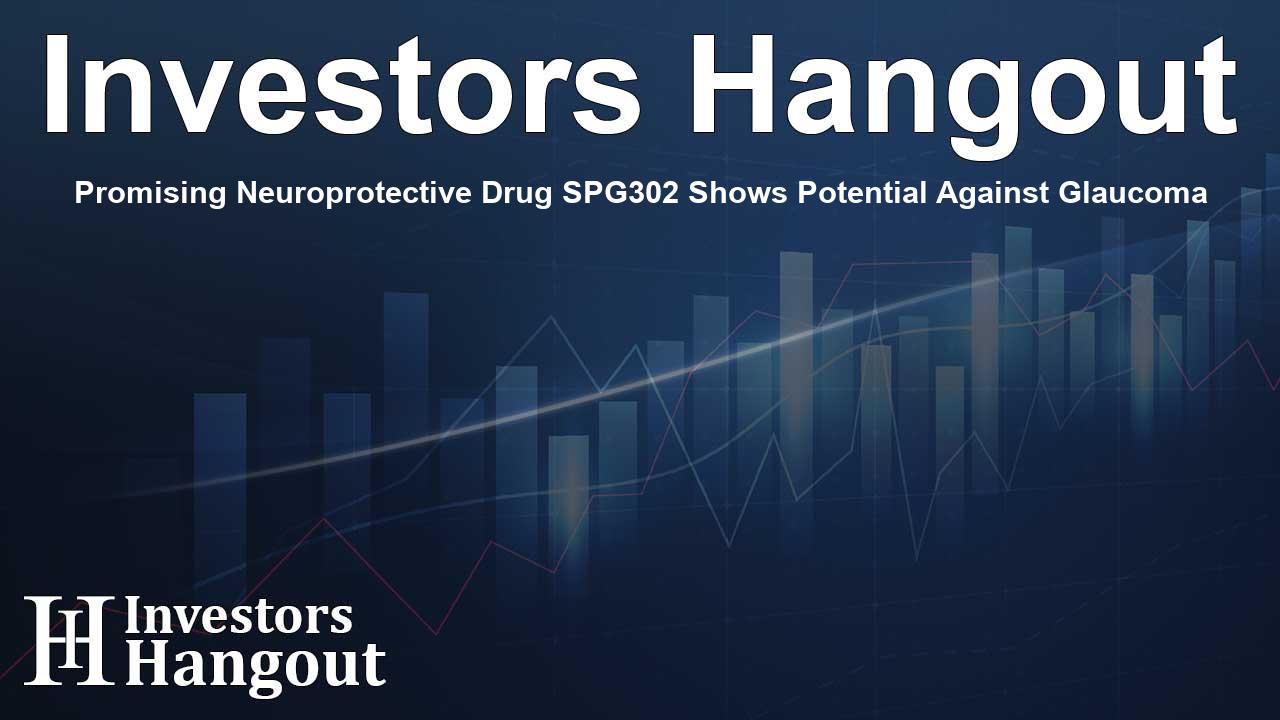Promising Neuroprotective Drug SPG302 Shows Potential Against Glaucoma

Spinogenix Validates SPG302 for Glaucoma Treatment
The recent findings published in the Experimental Eye Research journal highlight the promising neuroprotective effects of SPG302, a drug under development by Spinogenix, a clinical-stage biopharmaceutical company. This study suggests that SPG302 may play a vital role in protecting retinal ganglion cells (RGCs) in models of glaucoma, thus contributing to innovative treatment avenues for neurodegenerative diseases.
Understanding Glaucoma and Its Impact
With an alarming prevalence of around 80 million individuals affected globally, glaucoma stands as the leading cause of irreversible vision loss. This disease leads to the degeneration of the optic nerve and a drastic loss of retinal ganglion cells, impairing the ability to see. While current treatments aim to reduce intraocular pressure (IOP), which is a primary risk factor for glaucoma, some patients experience disease progression even with normal IOP levels. This highlights an urgent need for alternative treatments targeting the underlying neurodegeneration associated with the condition.
SPG302 and Its Action Mechanism
In the study, three-month-old mice were subjected to elevated IOP through microbead injection and subsequently treated with SPG302 for eight weeks. The results revealed that SPG302 significantly improved the survival rate of RGCs and the integrity of their axons. Moreover, the treatment helped maintain visual function as measured by electroretinography, indicating its potential therapeutic benefit in preserving sight.
The Insights from the Study
Dr. Stella Sarraf, the CEO and Founder of Spinogenix, emphasized the significance of the findings, noting how the study underscores the causal link between synapse loss in the retina and the progression of glaucoma. Such insights could pave the way for advancing SPG302 to clinical trials, aiming to introduce effective treatment options for millions of glaucoma patients.
The Role of Synaptic Regeneration
The protective effects of SPG302 are associated with its capacity to preserve retinal synapses, crucial connections between neurons that facilitate communication. The study established that targeted regeneration of these synapses might address the impairments leading to neuronal death and progressive vision loss in glaucoma patients.
The Need for Novel Therapies
There is a soaring interest in exploring new therapeutic strategies to combat glaucoma's deteriorative effects. SPG302 represents a first-in-class approach, aiming not only to halt the progression of the disease but also to rejuvenate the retina and restore vision. This anticipation reflects a broader movement within the medical community aiming to shift paradigms in treating neurodegenerative conditions.
Potential Beyond Glaucoma
Beyond glaucoma, SPG302 is being evaluated for various neurodegenerative and neuropsychiatric conditions, including Alzheimer's disease, ALS, and schizophrenia. This multifaceted approach positions Spinogenix at the forefront of developing therapies that target both synaptic regeneration and neuroprotection.
About Spinogenix and Its Mission
Spinogenix is dedicated to transforming treatment paradigms for neurodegenerative disorders through innovative therapies designed to restore synaptic connections. The company is working on novel drug candidates like SPG302, which aims to regenerate synapses and reverse cognitive declines associated with various diseases.
Continued Research and Development
With ongoing clinical trials and the potential for groundbreaking therapies, Spinogenix is committed to advancing its research initiatives. The focus remains on delivering improved treatment modalities that could enhance the quality of life for countless individuals suffering from neurological conditions. The hope for a future where effective treatments are accessible is a driving force for Spinogenix's efforts.
Frequently Asked Questions
What is SPG302?
SPG302 is a synaptic regenerative treatment being developed by Spinogenix, designed to protect and restore function in neurodegenerative diseases, including glaucoma.
How does SPG302 help with glaucoma?
SPG302 has shown potential in protecting retinal ganglion cells and preserving visual function, thus addressing key aspects of glaucoma pathology.
What are the next steps for SPG302?
Spinogenix aims to advance SPG302 into clinical programs to offer new treatment options for patients suffering from glaucoma and other neurodegenerative diseases.
Why is synapse regeneration important?
Regenerating synapses can help restore communication between neurons, which is crucial for maintaining visual function and preventing further degeneration in conditions like glaucoma.
What other diseases is Spinogenix targeting?
Aside from glaucoma, Spinogenix is evaluating SPG302 for Alzheimer’s disease, ALS, and schizophrenia as part of its broader therapeutic portfolio.
About The Author
Contact Hannah Lewis privately here. Or send an email with ATTN: Hannah Lewis as the subject to contact@investorshangout.com.
About Investors Hangout
Investors Hangout is a leading online stock forum for financial discussion and learning, offering a wide range of free tools and resources. It draws in traders of all levels, who exchange market knowledge, investigate trading tactics, and keep an eye on industry developments in real time. Featuring financial articles, stock message boards, quotes, charts, company profiles, and live news updates. Through cooperative learning and a wealth of informational resources, it helps users from novices creating their first portfolios to experts honing their techniques. Join Investors Hangout today: https://investorshangout.com/
The content of this article is based on factual, publicly available information and does not represent legal, financial, or investment advice. Investors Hangout does not offer financial advice, and the author is not a licensed financial advisor. Consult a qualified advisor before making any financial or investment decisions based on this article. This article should not be considered advice to purchase, sell, or hold any securities or other investments. If any of the material provided here is inaccurate, please contact us for corrections.
